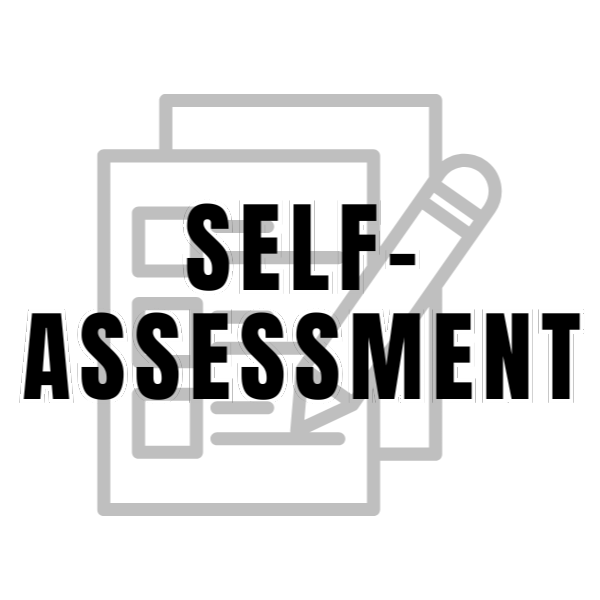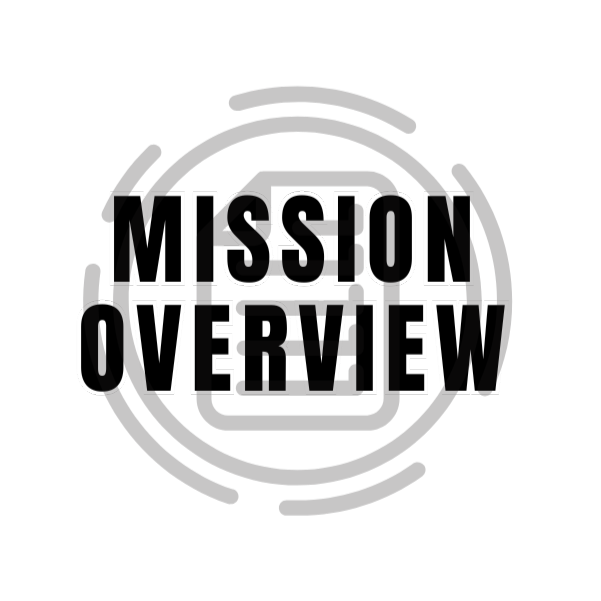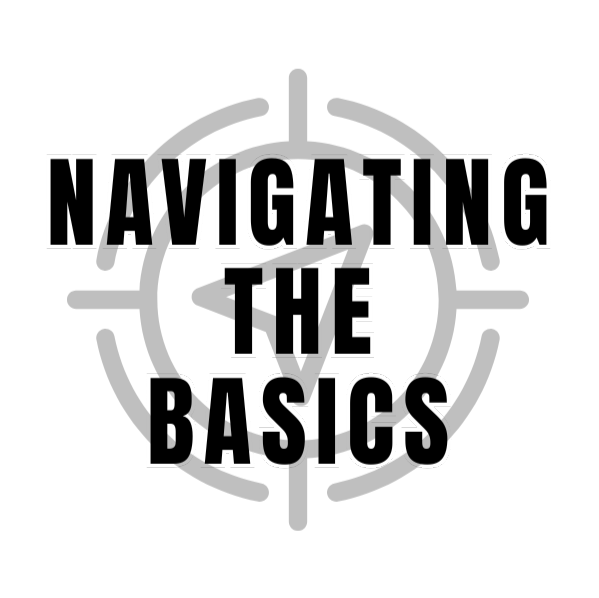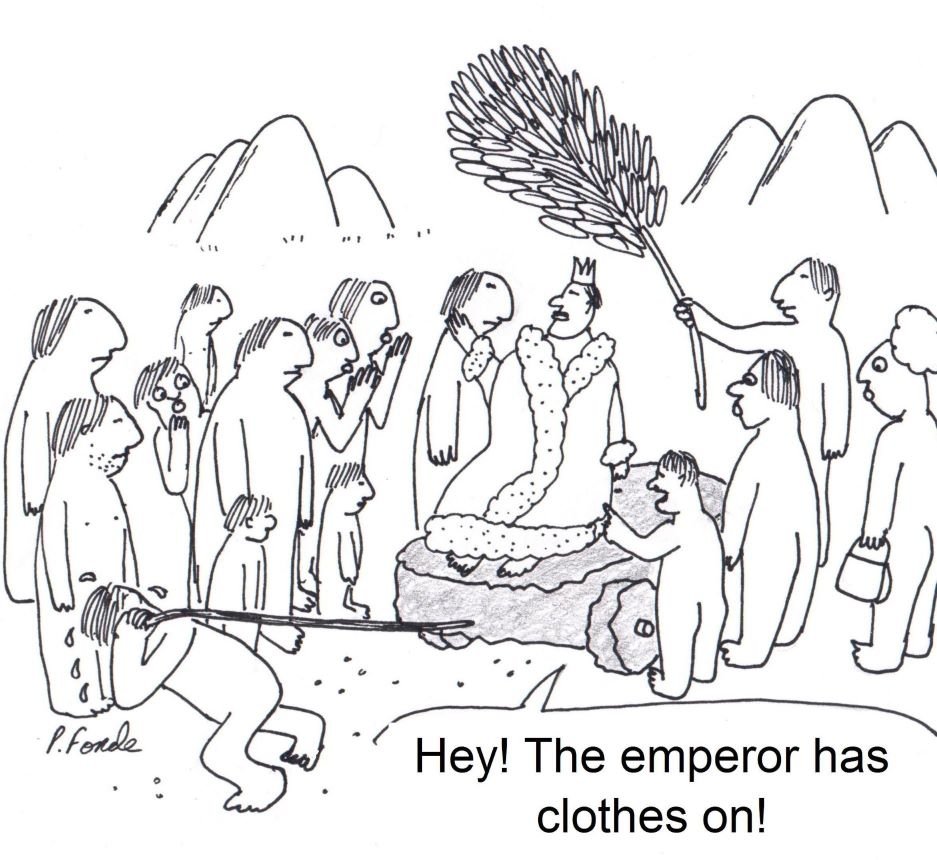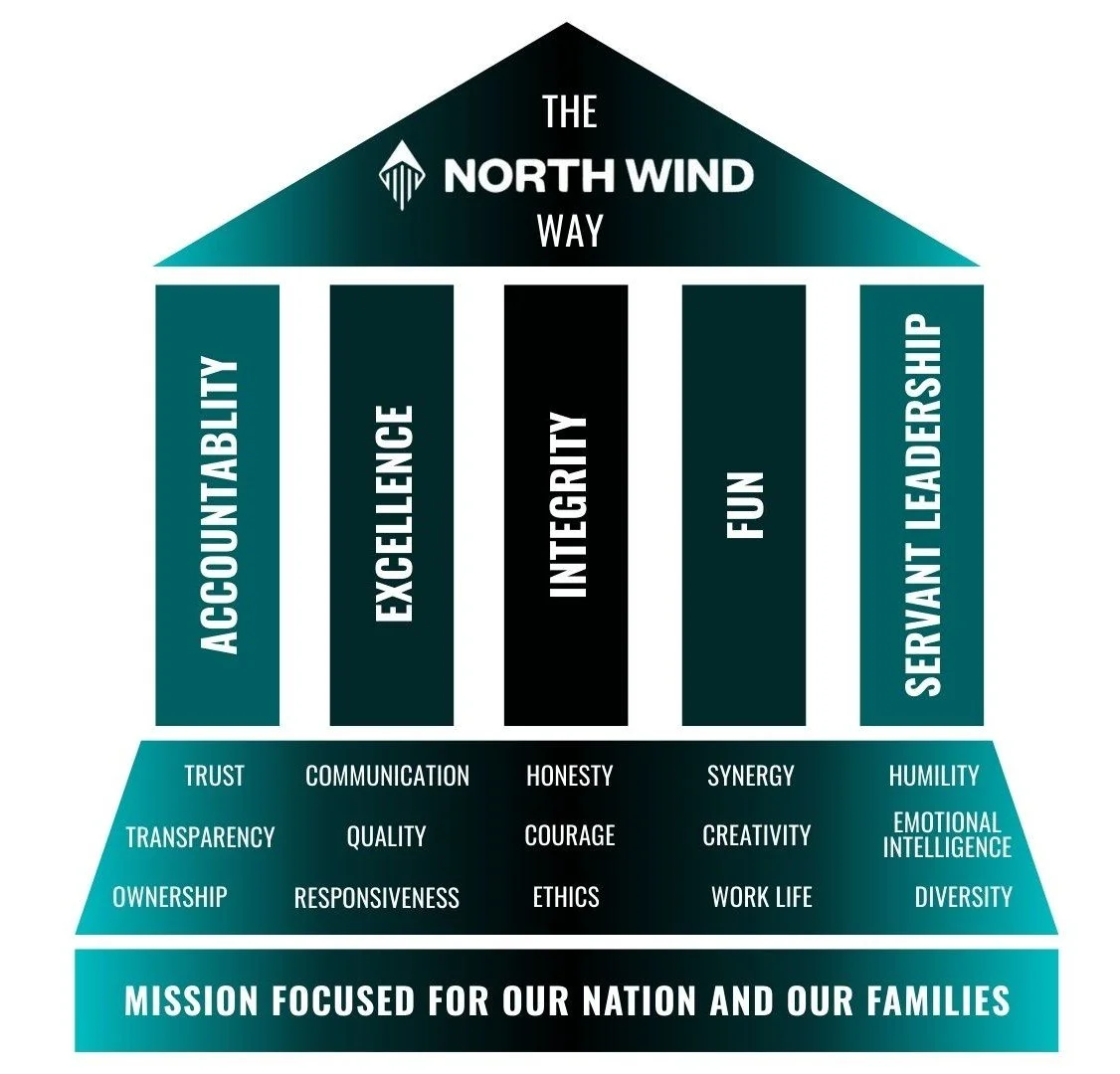The Power of Truth
Honesty in leadership determines whether people trust what you say and believe in how you lead. When leaders communicate truthfully, they build integrity that others can rely on, creating an environment where clarity replaces confusion.
Being truthful requires saying what needs to be said, even when that means admitting mistakes or delivering uncomfortable news. Leaders who practice honesty consistently demonstrate that integrity matters more than appearance, and that trust is built through repeated acts of transparency rather than carefully managed impressions. When you commit to truthfulness, you create space for others to do the same, building a culture where people feel safe speaking up.
At North Wind, truth forms the foundation of how work gets done. Leaders who are honest about what they know, what they expect, and where they need input allow their teams to operate with confidence. In this session, we'll explore how transparency builds trust, examine what happens when leaders avoid difficult truths, and identify practices that help you lead with integrity in your daily work.
Self-Assessment: The Power of Truth
Please take a few moments to contemplate the following self-reflection questions. Where can you identify opportunities for personal growth in your leadership?
How do I ensure that people around me feel safe to express honest opinions, even when they differ from my own?
Am I transparent about the goals and objectives of the projects and initiatives I'm involved in?
Have there been moments in my leadership role where I chose not to be fully truthful? What were the outcomes?
In what ways do I practice transparency in my decision-making processes and communication?
Do I provide accurate and truthful information to others, even when it's difficult?
How do I respond when I realize I've made a mistake or a poor judgment?
Do I share both successes and failures openly to build trust?
How do I demonstrate authenticity in my leadership and interactions with others?
Remember, this self-assessment is just a starting point for understanding your knowledge of The Power of Truth as a leader. It's essential to reflect on your responses and actively work on areas where improvement is needed. Additionally, seeking feedback from others and working with your ECFL Leadership Coach can provide valuable insights into your strengths and weaknesses.
Take a few minutes to read Hans Christian Andersen's tale "The Emperor's New Clothes." As you read, consider how this story relates to honesty, integrity, and what happens when leaders and those around them choose silence over truth.
Once upon a time, there was an emperor who loved clothes. He spent all his money on fancy outfits and cared more about his wardrobe than anything else.
One day, two tricksters came to the emperor's city. They claimed to be weavers and said they could make the most beautiful clothes in the world. But these clothes were special, as they were invisible to anyone “stupid” or unfit for their job.
The emperor was very excited. He thought, "If I wear these clothes, I'll be able to tell who in my kingdom is unfit for their job or foolish." So he gave the weavers money to start their work.
The tricksters set up looms and pretended to weave, but they didn't really do anything. Instead, they just pocketed the money and asked for more silk and gold thread, which they also kept for themselves.
Soon, the emperor was curious about how the clothes were coming along. He sent his most trusted minister to check on the weavers' progress. The minister went into the room, but all he saw were empty looms. He thought, "I can't see anything! Does this mean I'm stupid or unfit for my job?" But he didn't want to admit it, so he praised the weavers and told the emperor how beautiful the clothes were.
The emperor sent more officials to see the clothes, and they all saw nothing but empty looms. However, they also didn't want to seem foolish, so they all praised the invisible fabric.
Finally, the emperor himself went to see the clothes. He stared at the empty looms and thought, "Am I stupid? Am I unfit to be emperor?" But he didn't want anyone to think badly of him, so he said the clothes were marvelous.
The day came for the emperor to wear his new clothes in a grand parade. The tricksters pretended to dress him in the invisible outfit. The emperor looked at himself in the mirror and thought, "I can't see anything, but I must go along with it."
The emperor walked through the city in the parade, and all the people who had heard about the special clothes pretended to admire them. They didn't want to seem foolish either. But then, a little child, who didn't know about the magic clothes, called out, "The emperor has no clothes on!"
Everyone started whispering and soon realized the child was right. The emperor was embarrassed, but he continued to walk proudly through the parade. He knew everyone could see he was wearing nothing, but he had to finish the procession.
The tricksters had already left the city with all the emperor's money, and the emperor learned a valuable lesson about honesty and pride.
A truthful leader is a trusted leader. In "The Emperor's New Clothes," we see what happens when fear replaces honesty and when leaders surround themselves with people who won't challenge them.
The child's statement exposes the reality everyone else refused to acknowledge: "The Emperor has no clothes!" While the emperor's advisors and subjects pretended to see the clothes out of fear, the child simply told the truth. That moment shows why honesty matters, particularly when speaking up feels risky or uncomfortable.
The emperor made a critical mistake by surrounding himself with people who told him what he wanted to hear instead of what he needed to hear. As a leader, you need people around you who will give you honest feedback, even when it contradicts your perspective. This requires creating conditions where people can speak truthfully without facing consequences for doing so.
Anyone can tell the truth when it's convenient or when it benefits them. The real test comes when being honest means admitting you were wrong, delivering news people don't want to hear, or speaking up when staying quiet would be easier. Those moments define your leadership more than the decisions you make when everyone already agrees.
“Whoever is careless with the truth in small matters cannot be trusted with important matters.”
Leadership requires authenticity, or aligning what you believe with how you act. When leaders communicate through half-truths or deliberately vague language, they generate cynicism and undermine the trust they've worked to establish.
The emperor chose to protect his image rather than face reality, which resulted in both self-deception and the loss of credibility with everyone around him. Each time he perpetuated the lie, he undermined his own authority and made it clear that his judgment couldn't be trusted.
The Emperor’s Actions That Broke Trust:
Letting Vanity Cloud Judgment: The Emperor’s focus on appearance made him vulnerable to deception. Leaders must avoid letting pride or vanity influence their decisions.
Suppressing Independent Thinking: The Emperor’s court fell into groupthink, where no one wanted to admit they couldn’t see the clothes. Leaders who discourage dissent or punish contrary opinions end up surrounded by people who won't tell them the truth.
Failing to Evaluate Information Critically: The Emperor accepted the weavers’ claims without question, leading to his public humiliation. Leaders who don't challenge information or who accept solutions that seem too good to be true often find out too late that they've been misled.
Creating a Culture of Fear: Fear of being labeled unfit or foolish silenced everyone. Leaders should create an environment where people feel safe to share their thoughts and concerns without fear of retaliation.
“Oh what a tangled web we weave
When first we practice to deceive!”
The child's statement changed everything because it named the truth everyone else was avoiding. As a leader, you have a responsibility to create conditions where truth can be spoken and heard.
Ask yourself:
What am I doing to make honesty possible?
Where am I allowing fear or pride to get in the way of truth?
What do I need to change to build and maintain trust?
Integrity and honesty are fundamental to building and maintaining trust. Without honest communication, leaders make decisions based on incomplete or false information. The emperor's story demonstrates this clearly: deception and silence led to poor decisions, while one moment of truth revealed what everyone needed to see.
The Emperor's downfall came from surrounding himself with fear and silence. Avoiding that fate requires building an environment where honesty functions as the default, not the exception. These practices help establish that standard:
Best Practices for Demonstrating Honesty:
Display Transparency in Decision-Making: Share the rationale behind decisions, especially those that impact people directly. When others understand the reasoning behind decisions, they are more likely to trust and support them.
Address Issues Promptly and Fairly: When issues or mistakes arise, address them openly and fairly. Avoiding or covering up problems damages trust. Demonstrate that you are committed to learning from mistakes and improving.
Establish Clear Policies and Consequences: Clearly define policies regarding honesty and transparency, and ensure that there are consistent and fair consequences for dishonesty. This helps to set expectations and maintain accountability.
Foster a Culture of Openness and Trust: Encourage an environment where people feel safe to express their opinions and share information without fear of repercussions. This requires consistent and fair treatment of everyone.
Recognize and Reward Honesty: Acknowledge and reward people who demonstrate honesty and integrity. This reinforces the importance of these values and encourages others to do the same.
Speaking the truth strengthens integrity because it shows you're willing to be held accountable for what you communicate and commit to. That commitment gets tested when being honest means admitting you were wrong, delivering news people don't want to hear, or pushing back on someone with more authority than you. How you respond in those moments shows whether your commitment to integrity is real or just something written in a policy. What will you do differently starting today?
Reflection Questions
Where in my daily responsibilities could greater honesty improve clarity or decision-making?
How do I respond when telling the truth feels uncomfortable or risks disapproval?
What can I do each day to ensure honesty remains visible in both my words and my actions?
Elevate your understanding of The Power of Truth by taking flight with the following resources. Use this opportunity to navigate, uncover, and expand the horizons of your leadership influence.
The Advantages of Telling the Truth at Work
Mary Dowd
Cultivating Everyday Courage: The Right Way to Speak Truth to Power
James R. Detert
Imagine a Workplace Where you Could Actually Tell the Truth
Lauren A. Taylor and David Berg


